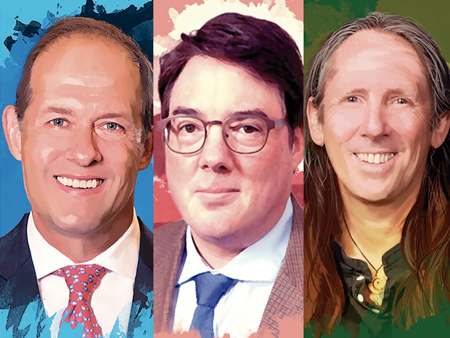Fairfield Begins Its First Season in the MAAC Esports League.
Being quarantined and confined to our rooms, egaming gave us the opportunity to still communicate with our friends on a daily basis. Egaming is not going away anytime soon.
— Ethan Godfrey, Club Advisor
Athletic fields may not be filled with the spirit of competition this fall due to Covid-19 restrictions, but a new and virtual field of play is thriving at Fairfield University — esports.
Gaining in popularity over the last several years, intercollegiate esports involve student teams competing in organized video game tournaments or leagues against other universities.
Tournaments are held globally, traditionally in packed arenas with cheering fans, and live streamed over services such as Twitch, YouTube, Facebook, and Twitter. More than 200 colleges and universities across the country feature egaming facilities with some even offering scholarships. Connecting players around the world, esports has become a global phenomenon.
When Director of Recreation Eli Olken-Dann arrived on campus in August 2019, he made it a top priority to bring esports to Fairfield. Along with Olken-Dann, Fairfield’s Gaming Club has been instrumental in working with the Recreation Department to host and attend various tournaments and events, plugging students into the egaming ecosystem on campus. With the help of the Fairfield Gaming Club and the planning committee, esports officially launched this fall with a new innovative egaming lab.
“We are excited to incorporate the egaming lab into the RecPlex,” said Olken-Dann. “Not only will this attract more students to our facility, but it will add another layer of engagement and competition to our recreation offerings.”
Partnering with award-winning global IT solutions provider Future Tech Enterprise, the new egaming lab is equipped with Lenovo’s Legion brand of gaming laptops, desktops, keyboards, monitors, headsets, and accessories.
“Esports is a great way to drive student engagement and connections, as well as attract prospective students,” said Bob Venero, P’24,’21, president and CEO of Future Tech Enterprise, Inc.

Fairfield Gaming Club President Eryiel Mascardo ’21 observes Justin Demas ’21 in competition.
Future Tech works closely with many of the world’s leading gaming equipment manufacturers and is an IT partner-of-choice for leading universities and Fortune 500 companies in the aerospace, defense, energy, healthcare, manufacturing, and retail sectors.
Fairfield’s Esports Club has four competing teams that play four different games: Overwatch, Rocket League, Super Smash Brothers Ultimate, and FIFA. The size of each team during a tournament varies by game with six members for Overwatch, two for soccer simulation video game FIFA, five for Super Smash Brothers Ultimate, and three for vehicular soccer game Rocket League.
Fairfield is a member of the Metro Atlantic Athletic Conference (MAAC) esports league. MAAC schools will compete in a regular season competition online, which began in October, to be capped by a conference championship in March 2021. In addition to Fairfield, current MAAC schools with esports teams include Canisius College, Marist College, Niagara University, Quinnipiac University, Saint Peter’s University, and Siena College.
Similar to traditional recreation sports, esports require team community building, discipline, agility, and resilience in order to successfully compete. Esports is competitive like traditional sports but the competition is based on analytical skills.
“Whenever we discuss skills in teams, we always say that being able to collaborate and communicate with the team are the most important skills. The ability to work together fluidly and synchronously is key to make the best plays in any team-based game,” explained Fairfield Gaming Club President Eryiel Joyce Mascardo ’21.
To help students prepare for their first-ever MAAC season, Mascardo said the teams practice together in custom-made matches and play in scrimmages and practice games with other colleges and universities.
While many sports are on hold due to the pandemic, esports has continued to gain momentum with no sign of slowing. Club Advisor Ethan Godfrey said, “Being quarantined and confined to our rooms, egaming gave us the opportunity to still communicate with our friends on a daily basis. Egaming is not going away anytime soon.”
According to Newzoo’s Global Esports Market Report released in February 2020, the esports market revenue is predicted to reach $1.1 billion in 2020, a 15.7 percent growth year over year with the highest grossing revenue stream coming from sponsorships and media rights. Global video game tournaments are also predicted to reach 454 million viewers in 2020, an 11.7 percent increase from 2019, and that number is expected to grow to 646 mil- lion by 2023. Additionally, Business Insider is predicting esports viewership to grow at a nine percent compound annual growth rate from 2019 to 2023.
There are critics who question whether esports should be considered a sport. Responding to the critics, Olken-Dann said, “There is actually a surprising physical element to esports that many people don’t consider. Many of the top esports athletes in the world use performance coaches to help them physically prepare for competition.”
“Esports is considered a sport because it takes stamina,” Olken-Dann continued. “You have to be mentally sharp for the duration of the competition.”







